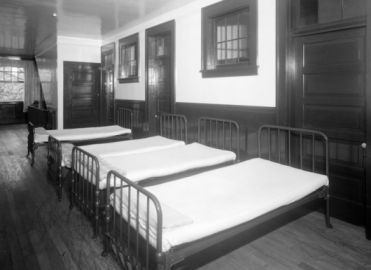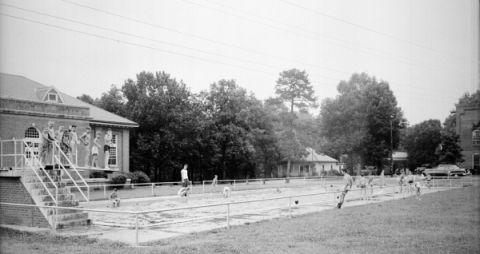See also: Free Will Baptist Children's Home; Baptist Children's Homes; Methodist Home for Children

Orphans were an important part of colonial North Carolina society because of high mortality rates and the large number of children present in the population. As early as 1665, William Drummond, the colony's first governor, complained that something needed to be done "to save the rights of orphans." This warning would become one of the guiding standards of the colony.
Orphans were primarily treated according to their "rank and degree," with wealthy individuals being granted more attention by the law. A guardian, often a relative, was appointed to competently maintain the minor's estates-land, animals, buildings, and physical wealth such as their accounted enslaved people, money, and plate-and to support him or her from the interest produced. Each year this trustee was required to report on the progress of the estate, his disbursements, and the well-being of his charge. A guardian was not permitted to abuse the orphan, to neglect care or education, to misuse the legacy, or to marry the child if it was female. In the event that a court-superior, inferior, the General Court, or the more specialized Orphans' Court-suspected wrongdoing, it had the power to immediately intervene, investigate and displace the guardian, and, if necessary, take charge of the estate.

Orphans with insufficient inheritance or with none at all were represented yearly as a group before the Orphans' Court by the church wardens of each parish. The very young were appointed guardians, with the parish usually supplying an annual sum of money to maintain them. Older youths were assigned to "some tradesman, merchant, mariner, or other person" until a male reached age 21 or a female, 18. The youths were expected to be fed, clothed, taught to read and write, and educated in a trade. In return they contributed labor, a commodity always in short supply. If the bargain was incomplete at the time the apprenticeship ended, the apprentice was expected to continue to pay on his contract; but if the tradesman failed to do his part, he was subject to prosecution.
During the twentieth century, the care of orphans and other disadvantaged children increasingly became the focus of various state and federal agencies. Today, the North Carolina Division of Social Services maintains a number of programs for children in need, with private organizations such as the Methodist Home for Children in Raleigh providing additional resources.